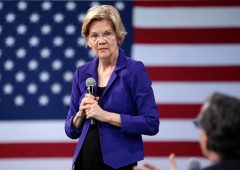Blockchain is the Future of Finance, According to Robinhood CEO
18.07.2024 9:30 1 min. read Alexander Stefanov
In a recent report by Fortune, Robinhood CEO Vlad Tenev expressed his belief that tokenization represents the next evolutionary step for financial services.
Tenev highlighted that assets like stocks could soon be transacted on blockchains, eliminating the need for traditional intermediaries in processes like trade settlements.
According to Fortune, major financial institutions such as BlackRock and Goldman Sachs are already exploring the potential of tokenization by issuing assets such as dollars and stocks on blockchain platforms.
Tenev also discussed Robinhood’s strategic moves in the crypto space, including the acquisition of Bitstamp for $200 million in June. He emphasized the significant cost efficiencies of running a crypto business compared to traditional financial operations, citing a clear technological advantage.
Regarding future plans, Tenev hinted at Robinhood’s interest in offering crypto futures trading in both the US and European markets, although no specific timeline has been set for this expansion.
Additionally, Tenev envisioned Robinhood evolving into a comprehensive wealth management platform, akin to traditional banks, by broadening its services to include retirement accounts, credit cards, and high-yield cash accounts.
-
1
Coinbase Brings Cardano and Litecoin to DeFi via New Wrapped Tokens on Base
26.06.2025 18:00 1 min. read -
2
XRP Ledger Sees Sharp Drop in Activity as Key Network Metrics Tumble
26.06.2025 19:00 1 min. read -
3
Top 10 DeFi Projects by Development This Month
28.06.2025 20:00 1 min. read -
4
XRP Ledger Deploys EVM-Compatible Sidechain to Expand Multichain Utility
30.06.2025 21:00 2 min. read -
5
What the U.S. Blockchain Act Means for Crypto’s Future
29.06.2025 18:00 2 min. read
German State-Owned Development Bank Issues €100 Million Blockchain Bond
Germany’s state-owned development bank NRW.BANK has issued a €100 million ($116.7 million) blockchain-based bond, marking one of the largest public-sector entries into digital securities in Europe.
Top 10 blockchains by transaction volume in June 2025
New data highlights a dramatic lead for Solana in blockchain activity for June 2025. According to the figures, Solana processed a staggering 2.98 billion transactions, far outpacing all other chains in the ecosystem.
Top 10 AI and Big Data Crypto Projects by Development Activity
According to new insights from market intelligence platform Santiment, development activity in the crypto sector’s AI and Big Data segment remains strong, with several major projects showing notable GitHub activity over the past 30 days.
XRP Ledger Deploys EVM-Compatible Sidechain to Expand Multichain Utility
The XRP Ledger (XRPL) has officially launched its Ethereum Virtual Machine (EVM) sidechain on mainnet — marking a major milestone in its effort to bridge XRP’s payment efficiency with Ethereum’s smart contract capabilities.
-
1
Coinbase Brings Cardano and Litecoin to DeFi via New Wrapped Tokens on Base
26.06.2025 18:00 1 min. read -
2
XRP Ledger Sees Sharp Drop in Activity as Key Network Metrics Tumble
26.06.2025 19:00 1 min. read -
3
Top 10 DeFi Projects by Development This Month
28.06.2025 20:00 1 min. read -
4
XRP Ledger Deploys EVM-Compatible Sidechain to Expand Multichain Utility
30.06.2025 21:00 2 min. read -
5
What the U.S. Blockchain Act Means for Crypto’s Future
29.06.2025 18:00 2 min. read


